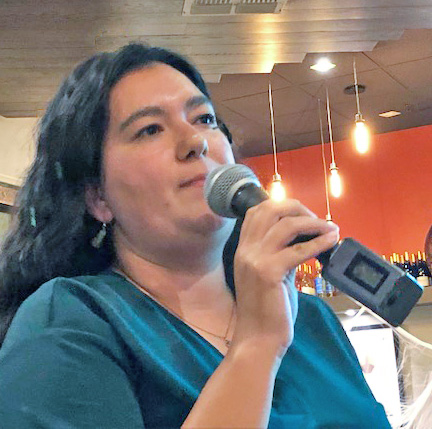
(Oct 11)
Recycling is needed to minimize the increasing accumulation of trash, chemicals and micro-plastics in the environment. The disposables that we deposit in our curbside color-coded bins have important but unseen impact on the environment of all of us. Landfills release methane gas, which is 25 times more potent than CO2 at trapping heat and promoting climate change. Micro-plastics enter the soil, water and food supply, and are infiltrating every living thing on the planet. Landfill space is becoming increasingly limited. Climate change is driven by excess release of greenhouse gases, including CO2, methane, CFCs (chemicals), NOx & SOx (nitrogen & sulfur oxides). Southern California is in the 3rd year of La Niña with unprecedented drought & wildfires. We are getting stronger storm systems and rising sea levels threatening coastal structures and transportation systems.
Disposed plastics in the environment including the ocean are breaking down by solar energy into microscopic particles that are now found in the bloodstreams of all of us, spread by storm water, litter, gigantic trash gyres in the ocean, and defective recycling efforts. We can all contribute to reducing this accumulating burden by demanding less plastics when shopping for consumer goods.
Bailey reviewed the trash & recycling guidelines for the local cities. RPV uses EDCO, Rolling Hills uses Republic Services, and PVE uses Athens Services. Different companies have access to different types of facilities. Trash companies take recyclables to resell to the materials market. “Wishcycling” is putting in things you “hope” are recyclable, but inappropriate items have to be separated later, impairing recycling efficiency.
The blue bin takes aluminum, glass, cardboard & paper, but not soiled paper plates or grocery bags. Plastics #1 are easiest to recycle; #2 & #5 can be processed by Athens; Styrofoam can now be processed by EDCO.
The green bin takes organics under the new statewide organic recycling program, to break down food waste and other organic materials into fertilizer. This includes food and compostables and food-soiled paper, but not plastics, glass, metal, gloves, pet waste or Styrofoam. This helps avoid outgassing methane into the atmosphere from rotting organics.